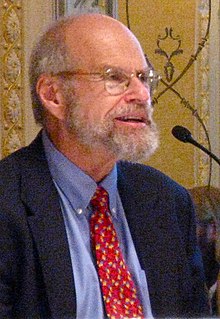A Quote by William T. Vollmann
When I was writing the first few books, what I would do is write a bunch of sentences and then go back and expand and explode those sentences, pack as much into them as I could, so they'd kind of be like popcorn kernels popping... all this stuff in there to make the writing dense, and beautiful for its density.
Related Quotes
What I'm really involved in when I'm writing is something that no one ever mentions when they see any play. Writing is like trying to make gunpowder out of chemicals. You have these words and sentences and the strange meanings and associations that are attached to the words and sentences, and you're somehow cooking these things all up so that they suddenly explode and have a powerful effect. That's what absorbs me from day to day in writing a play.
I write different kinds of sentences, depending on what the book is, and what the project is. I see my work evolving. I'm writing long sentences now, something I didn't use to do. I had some kind of breakthrough, five or six years ago, in Invisible, and in Sunset Park after that. I discovered a new way to write sentences. And I find it exhilarating.
Writing is the act of creation. Put words on page. Words to sentences, sentences to paragraphs, paragraphs to 7-book epic fantasy cycles with books so heavy you could choke a hippo. But don't give writing too much power, either. A wizard controls his magic; it doesn't control him. Push aside lofty notions and embrace the workmanlike aesthetic. Hammers above magic wands; nails above eye-of-newt. The magic will return when you're done. The magic is what you did, not what you're doing.
I always tell my students to write the story all the way through, not to play with the language and fall in love with sentences that you then have to cut. I actually find that really difficult to do; there's something so demoralizing about looking at a pile of not very great sentences. As I ease into writing every morning, I tweak a sentence and then tweak a paragraph.
I turn sentences around. That's my life. I write a sentence and then I turn it around. Then I look at it and I turn it around again. Then I have lunch. Then I come back in and write another sentence. Then I have tea and turn the new sentence around. Then I read the two sentences over and turn them both around. Then I lie down on my sofa and think. Then I get up and throw them out and start from the beginning.
There are certain writers I can't read when I'm trying to write because their voices are so distinct. Cormac McCarthy, he's the most different writer from anything I've ever written, but there's something about those really spare sentences that is just tough - it would be too much of an influence. Grace Paley is my favorite writer. Her stuff is so voice-driven, when I read her a lot I want to make my writing more voice-y and dialogue-heavy. I love a lot of stuff in translation.
The most interesting thing about writing is the way that it obliterates time. Three hours seem like three minutes. Then there is the business of surprise. I never know what is coming next. The phrase that sounds in the head changes when it appears on the page. Then I start probing it with a pen, finding new meanings. Sometimes I burst out laughing at what is happening as I twist and turn sentences. Strange business, all in all. One never gets to the end of it. That’s why I go on, I suppose. To see what the next sentences I write will be.





































